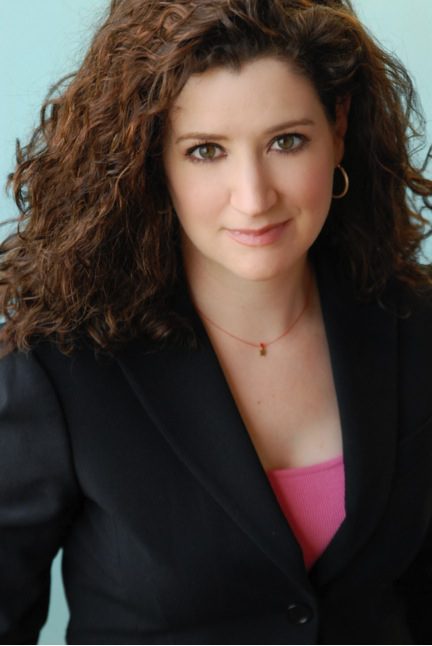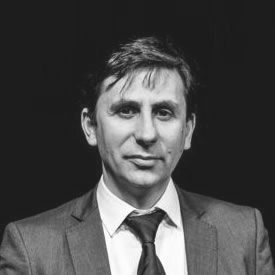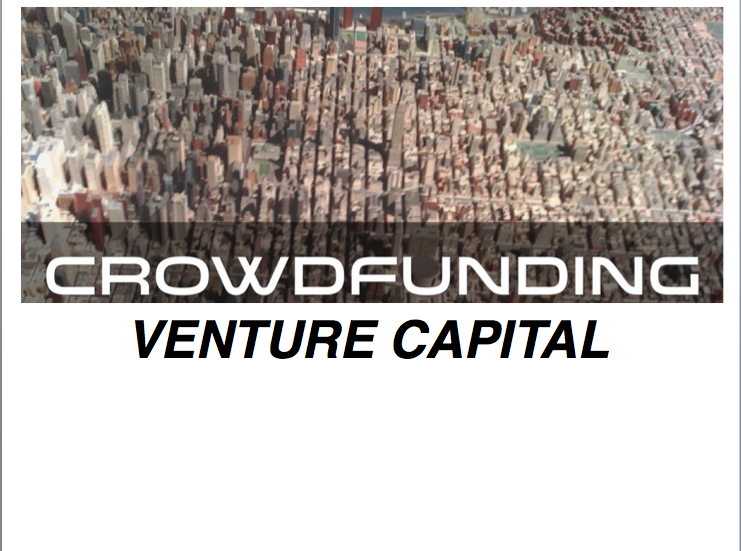
The Hedge Fund and Fund industry in general are undergoing massive challenges and changes. Since it is a fast growing industry, there are many substantial impediments and challenges that become burning issues of a day. The way it is perceived by society, the way it is positioned in the bigger investment industry, compliance issues and other well known concerns – all add up to the hindrances that might block a fast-paced industry growth. Another concern is that Fund Industry is dominated by male factor what in turn might also create limitations for its growth.
Meredith Jones is one of the few but bold and visionaire women, authors inside the industry. Her exceptional experience, knowledge and profile are inspiring and are an example to follow. HedgeThink presents an interview about her profile, work experience, views and her advice / recommendations for the industry. The interview covers hot topics of Hedge Funds Growth, Research, Future Trends and Directions, Women position, the risk of homogenisation and other topics.

With more than 16 years of experience, Meredith Jones is an internationally-recognized researcher, writer, speaker and expert in the alternative investment industry. Now a consultant and author, Meredith began her alternative investment career at Van Hedge Fund Advisors International (VAN), where she was Director of Research. At VAN, Meredith was responsible for manager selection, due diligence, index construction and aggregate industry research for the $500 million fund of funds.
Meredith was then recruited by hedge fund analytics provider PerTrac Financial Solutions. There she focused on industry trends with an eye to providing actionable insights and information. Her research on emerging managers, initiated in 2006, and women and minority-owned funds created new investment categories. It has changed the way investors and money managers behave – both in the way investors allocate and how money managers market to and seek investors. Meredith then went on to be Director at Barclays Capital Strategic Consulting Group. There she consulted for clients and authored white papers, including her first white paper on women and minority-owned investing.
She has gone on to speak and present research internationally – including conferences in Tokyo, London, Paris, Hong Kong, Cape Town, Johannesburg, Sydney, Geneva and more.
Until the acquisition of Rothstein Kass by KPMG, Meredith served as Director of the Rothstein Kass Institute, an Alternative Investment Think Tank at the professional services firm Rothstein Kass (RKCO). There she created the first Women in Alternative Investments Hedge Fund Index to measure performance of female hedge fund and private equity managers.
Meredith is a foodie and wine lover and maintains a love of charcoal and open flames when it comes to her own cooking. She is a figure skater and skates weekly, relying on an inexplicable addiction to decaffeinated coffee for her early morning ice times.
1. How did you get involved in the hedge fund industry?
I have been involved in the hedge fund industry since early 1998. I initially took a job at a fund of hedge funds (Van Hedge Fund Advisors) as a research analyst and eventually worked my way up to Senior Vice President of Research. My department was responsible for manager selection, due diligence, ongoing monitoring, asset allocation modeling, index construction and aggregate industry research for the firm.
I joined the firm about six months before Long Term Capital Management (LTCM) blew up, and still remember thinking what have I gotten myself into? Many people thought it was the death knell for hedge funds. My firm actually did a lot of evangelizing at the time, trying to demystify the industry and educate people about what hedge funds were and werent. We were even asked to testify in Congress about LTCM.
Looking back, I think LTCM did the industry more good than harm. The information that came out post-LTCM showed that hedge funds werent all highly-leveraged, risky, homogenized instruments. It also started the push towards institutionalization of the industry, particularly increasing transparency. Up until that point, some (albeit few) of our managers still reported returns quarterly. By the time I left the firm, I would say 70% to 75% of our managers were providing weekly performance estimates.
After I left Van Hedge, I moved on to PerTrac, now eVestment, where I continued to do aggregate industry research, but not manager-level research. I completed studies on emerging managers, the size of the hedge fund industry, diversification, short sellers if it was hedge fund related I probably researched it at one time. I joined Barclays Capital in 2010 and continued to do research, looking at portfolio diversifiers and women and minority owned funds, among other topics. I also began consulting with individual funds at that time, focusing primarily on client and prospect-facing activities such as go-to-market plans, due diligence questionnaires and written and personal pitches. I continued to do the same at Rothstein Kass until mid-2014.
Today, Im much more sanguine about the industry than I was back in 98. When industry experts predicted that separate accounts would become the norm in 2008, I was skeptical. Right now, there is overwhelmingly negative rhetoric about hedge funds based on performance and fees, but I continue to think the industry has legs. Taking a page from my time at Van, I spend much of my time trying to disseminate information about alternative investments that provides clarity and insight into the industry.
2. Why did you start your research company, MJ Alts?
Well, if the question above didnt make it clear enough, I am a giant alternative investments nerd. I love looking at the fractured data available on hedge funds, private equity and venture capital and trying to make cosmos from the chaos. However, unlike many researchers, I believe that information is only as good as what you can do with it. If research isnt actionable, its just mental floss.
MJ Alternative Investment Research starts with the premise that the industry needs content, or research, to evolve. I launched MJ Alts to provide critical information to industry participants that will hopefully push the alternatives forward.
3. What do you think makes MJ Alts unique in the industry?
Probably the number one thing that sets us apart is the fact that Ive got no dog in the hunt, to use the Southern expression. I want to get to the right answer, not just the answer that is expedient.
Many firms develop thought leadership backwards, in my opinion. They start with a premise they want to prove, generally for business purposes, and then work their way to the content. They dont want anything too controversial or that alienates clients. I just want alternative investment market participants to have the best information, even if its not the conclusion I was looking for at the beginning.
I look at the industry from the bottom up. I listen at conferences, I read everything. I have a lot of conversations. I try to determine what the industry is just starting to think about, and then I develop research that helps the industry as a whole evolve. I truly believe that, and have seen how, good content can create and change conversations. Its my passion.
4. What are some of your favorite research topics?
I started researching emerging (small and young) funds in 2006. It was one of the first studies that had been done on that topic, and it caused quite a stir. I remember getting a call from a large prime broker that told me they were sure my results were wrong. I continued to do that study through 2010 and the results came out the same each time. I think even the PB was eventually convinced.
In 2011, I began researching diversity managers, and that is a topic that continues to hold my interest today. I have done a lot of research on women and investing for a book Im writing now. I find the intersection of investing, neuro-finance, behavioral finance and political correctness fascinating in that space.
Im also a big fan of diversification research, partly because I believe strongly in high-conviction investing. And I love researching fees, because the pre-conceived notions that people have are often way off the mark. I think Im a bit of a fee contrarian.
5. You seem to have been attracted to underdog research subjects. What fascinates you about emerging managers and women and minority owned funds?
I think all but roughly 500 hedge funds have had it extremely hard over the past five years. Their ability to raise capital has been severely limited and their operational burdens have increased. Unless more capital flows to smaller, younger and diversity funds, I am deeply concerned that a valuable source of cognitive and structural diversification will disappear from the industry.
Homogeneous groups tend to think alike. They also tend to overestimate their problem solving skills and consider a narrower range of information. They may also be less open to new ideas. The universe of hedge funds contains more than 10,000 funds. At the present time, there are fewer than 500 hedge funds managed by women and minorities. If you look in the dictionary under homogenous I bet there may actually be an illustrative photo taken at a hedge fund conference.
Likewise when we think about emerging managers from the standpoint of smaller and younger funds, they represent more than half of the industry, but they receive less than 5% of the allocations. They are more often more nimble and can employ more niche-y strategies, which means they can also be less homogenous.
Id like to suggest that investors expand their definition of diversification. Maybe its not all about the asset allocation mix of stocks, bonds, futures, real estate and other asset classes. Perhaps its not even the number of funds you invest in or the mix of strategies you have. Maybe, just maybe, diversification includes the way in which the money managers collect, interpret and evaluate market data and the cognitive alpha they create for you. Smaller and younger funds, and women and minority owned funds, can provide different dimensions of diversification. I find that incredibly intriguing.
6. In 16 years in the hedge fund industry, you must have seen a lot of change. What do you think has changed for the better and what, if anything, has changed for the worse?
As I mentioned, I think that the changes in transparency have been generally good, although I sometimes question what investors with limited liquidity can do with the full daily transparency that some of them demand. I also think people now pay more attention to liquidity matches meaning the liquidity of the underlying investments matches the liquidity of the fund and mismatches, which is key to avoiding gates and side-pocketing.
I am generally concerned about the concentration of assets, however. I think that when I started in the industry, investors were more willing to invest with smaller and less name brand funds. I really believe that if you do what everyone else is doing, its difficult to make money. I guess Im a fund flow contrarian, too.
I also think the rabid fixation on hedge funds outperforming the S&P 500 and other indices is alarming. Thats an obsession that is bad for investors and bad for managers. And dont get me started on the whole concept of style drift.
7. You spent a number of years researching funds for investment. What do you think is the most critical skill for investors?
This is a people industry. Youve investing in managers, picking managers, researching managers. You have to have the ability to read people. You have to be able to connect the dots. And you have to be able to build relationships with a lot of industry participants so you can get the information you need to do both. If you do a good job of that, you wont be surprised on the downside. Youll understand what the manager is doing and sleep better at night.
8. Youve also spent a lot of time counselling hedge fund managers on how to be successful. What do you think is the most critical skill for investment manager success?
Recognizing what they are good at and where they are deficient. I see too many managers who try to do their own graphic design, pitch book development, prospect meetings, speaking engagements, vendor relations, etc. Its important to know if you excel at all of those tasks or if you should delegate them to someone else. If youre not a great public speaker and you speak at a large conference, you may alienate a significant potential investor pool. If your pitch book looks like your neighbours kid did it, you will have to work harder to overcome that. The stakes are too high to not delegate something that isnt your competitive advantage. If youre good at all those things, thats wonderful. But it is also pretty rare in a skilled portfolio manager.
And, for the record, I eat my own cooking on this one. I know Im a terrible graphic designer (unless you like stick figures) and a bad sales person. I always make referrals for clients that need things I dont do well.
9. What are the biggest challenges you see for the hedge fund industry in the next 3 to 5 years?
I think the continued bifurcation of the industry into asset haves and have-nots is a real problem. Again, I think that not investing in a more diverse group of managers stifles innovation and compromises overall industry and individual investor returns.
10. What are the best pieces of advice you can offer to overcome these challenges?
Emerging managers need to play to win. That means having great marketing materials and being pitch perfect. It means targeting the right investors at the right time and making sure they are ready to effectively court those investors. And of course, it mean generating great returns.
I think investing intermediaries (funds of funds and consultants) need to focus on how to package emerging and diverse managers to facilitate investments. This will enable them to protect their business and provide diversification and value to their end-investors.
And finally, investors need to be willing to embrace cognitive, structural and behavioural diversification as not just a nice-to-have, but as a need-to-have.

Dinis Guarda is an author, academic, influencer, serial entrepreneur and leader in 4IR, AI, Fintech, digital transformation and Blockchain. With over two decades of experience in international business, C level positions and digital transformation, Dinis has worked with new tech, cryptocurrencies, drive ICOs, regulation, compliance, legal international processes, and has created a bank, and been involved in the inception of some of the top 100 digital currencies.
Dinis has created various companies such as Ztudium tech platform a digital and blockchain startup that created the software Blockimpact (sold to Glance Technologies Inc) and founder and publisher of intelligenthq.com, hedgethink.com, fashionabc.org and tradersdna.com. Dinis is also the co-founder of techabc and citiesabc, a digital transformation platform to empower, guide and index cities through 4IR based technologies like blockchain, AI, IoT, etc.
He has been working with the likes of UN / UNITAR, UNESCO, European Space Agency, Davos WEF, Philips, Saxo Bank, Mastercard, Barclays and governments all over the world.
He has been a guest lecturer at Copenhagen Business School, Group INSEEC/Monaco University, where he coordinates executive Masters and MBAs.
As an author, Dinis Guarda published the book 4IR: AI, Blockchain, FinTech, IoT, Reinventing a Nation in 2019. His upcoming book, titled 4IR Magna Carta Cities ABC: A tech AI blockchain 4IR Smart Cities Data Research Charter of Liberties for our humanity is due to be published in 2020.
He is ranked as one of the most influential people in Blockchain in the world by Right Relevance as well as being listed in Cointelegraph’s Top People In Blockchain and Rise Global’s The Artificial Intelligence Power 100. He was also listed as one of the 100 B2B Thought Leaders and Influencers to Follow in 2020 by Thinkers360.






































